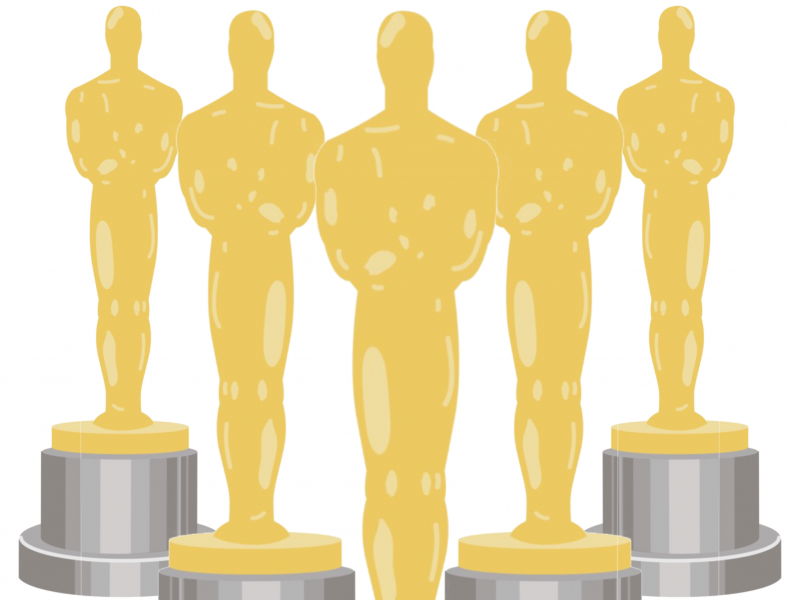The Academy of Motion Picture Arts and Sciences is trying to save itself from another #OscarsSoWhite fiasco that’s been plaguing the award show since 2015.
That year, April Reign tweeted out the infamous hashtag after the Academy Awards nominations failed to include people of colour in the Best Actor and Best Actress categories. Granted, Mexican director Alejandro González Iñárritu won Best Director, but that didn’t make up for the exclusion of other minorities in the biggest categories.
Fast-forward to the 2020 Academy Award nominations: people of colour are nominated, but their inclusion feels more like tokenism than genuine inclusivity.
The Best Actress category includes Scarlett Johansson, Saoirse Ronan, Charlize Theron, Renée Zellweger. Finally, Cynthia Erivo is the only person of colour on the list and, ever so coincidentally, she played Harriet Tubman, a slave. This wouldn’t be such a cause for concern if the movie was, well, good. The movie received mixed reviews and was far from a box office smash, yet the Academy decided Erivo’s performance was Oscar-worthy. It wasn’t––it was simply fine.
Erivo’s inclusion in the category isn’t worth rioting over considering she did do a decent job. The problem lies in who the Academy chose to include versus who was excluded. Sure Charlize Theron and Renée Zellweger are fine actresses, but their performances in their respective movies (Bombshell and Judy) aren’t notable.
Instead, nominations could have gone to Awkwafina, who knocked her performance out of the park in The Farewell or Lupita Nyong’o with her performance in Us, where she took on two polar opposite roles in the same film. Neither actress is white: Awkwafina is Chinese-Korean-American and Lupita Nyong’o is Kenyan, and born in Mexico.
Like every year, a powerful performance will be forgotten. With limited selections, it makes sense that someone we thought was deserving of a nomination would get snubbed—that’s the business. However, this year, Awkwafina and Nyong’o’s exclusion doesn’t seem to be about talent and merit.
Obviously, the Oscars shouldn’t be about forcing inclusion to please non-whites. Quality should be the driving factor as to who is or isn’t nominated. But when movies like Harriet, Richard Jewell and Bombshell take up precious nominations, at what point do we ask ourselves whether the Academy is actually choosing good movies or if they’re making choices to please simple moviegoers?
Stephen King tweeted an ideal scenario where films should be judged on their quality and that diversity should not be a factor when the films are being vetted for award shows. He’s right to a certain extent that art should be judged on quality. However, watch Bombshell and The Farewell, and tell me that the former was the better movie. I’ll wait.
The Oscars exist as a vehicle for white male art to take the forefront; and when you have powerful white males defending that stance, it makes this whole situation that much worse.
With every step forward the Academy takes, it seems they also always take two steps back. Moonlight, a film that follows the life of a gay Black man growing up in the U.S., took home the award for Best Picture in 2018. Mahershala Ali and Regina King won Oscars for their performances in Green Book and If Beale Street Could Talk in 2019. After the 2020 nominations, it seems more plausible that those wins were just crowd-pleasers to shut the #OscarsSoWhite crew up.
It’s no secret the biggest film award show in the U.S. favours white films. In February 2019, Indiewire ran a story showing that less than 200 Black people—out of almost 10,000 slots—were nominated across all categories since its inception. For context: four Black men won Best Actor in a Leading Role; one Black actress won Best Actress in a Leading Role; five Black men won Best Actor in a Supporting Role; eight Black women took home awards for Best Actress in a Supporting Role. Not a single Black director won Best Director, out of only six nominations.
Racism isn’t the only problem the Oscars face. There is blatant sexism in certain categories like Best Director, in which only one woman has ever won: Kathryn Bigelow for The Hurt Locker in 2009. This year, Greta Gerwig was snubbed after directing Little Women, one of the year’s finest films that required the utmost care to make.
Conversely, the Oscars did do something right this year by adding the Korean sleeper hit of the year, Parasite. Never has a Korean film or director been nominated for Best Picture or Best Director respectively and given the outstanding reception of the film; it would have been criminal to exclude it from the award show.
Unfortunately, that alone does not make up for the rest. Women and people of colour have always been overlooked at film award shows. Even when we try to make things better, things stay the same.
Graphic by @sundaeghost
